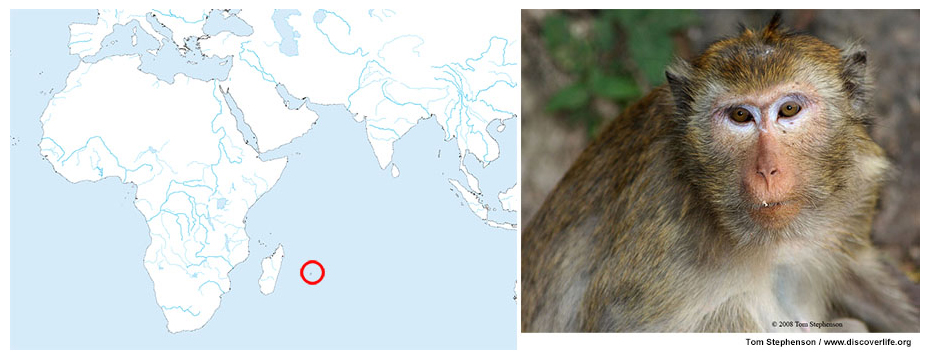The analysis of six cynomolgus macaque genome sequences in an isolated island
Division of Evolutionary Genetics • Akashi Group
Division of Population Genetics • Saitou Group
Whole-genome sequencing of six Mauritian cynomolgus macaques (Macaca fascicularis) reveals a genome-wide pattern of polymorphisms under extreme population bottleneck
Naoki Osada, Nilmini Hettiarachchi, Isaac Adeyemi Babarinde, Naruya Saitou, Antoine Blancher
Genome Biology and Evolution, 7(3):821–830 (2015) DOI: 10.1093/gbe/evv033
Cynomolgus macaques (Macaca fascicularis) are important animals for biomedical research and known to be genetically highly heterogeneous. They are mainly distributed throughout Southeast Asia, but a small number of individuals were introduced to the island of Mauritius by humans around the 16th century. The unique demographic history of the Mauritian cynomolgus macaques would be useful for understanding the effect of an extreme population bottleneck on the pattern of polymorphisms in genomes. We sequenced and analyzed the whole genomes of six Mauritian cynomolgus macaques, and found the mild reduction of overall level of nucleotide diversity as well as the strong reduction of low-frequency polymorphisms in the populations. In addition, we confirmed that the Mauritian cynomolgus macaques have been originated from Indonesia-Malaysian cynomolgus macaques. The information of the genome sequences would be useful for future biomedical research using those macaques that have unique population history.

(Left panel) The island of Mauritius is marked by the red circle; (Right panel) a picture of cynomolgus macaque















